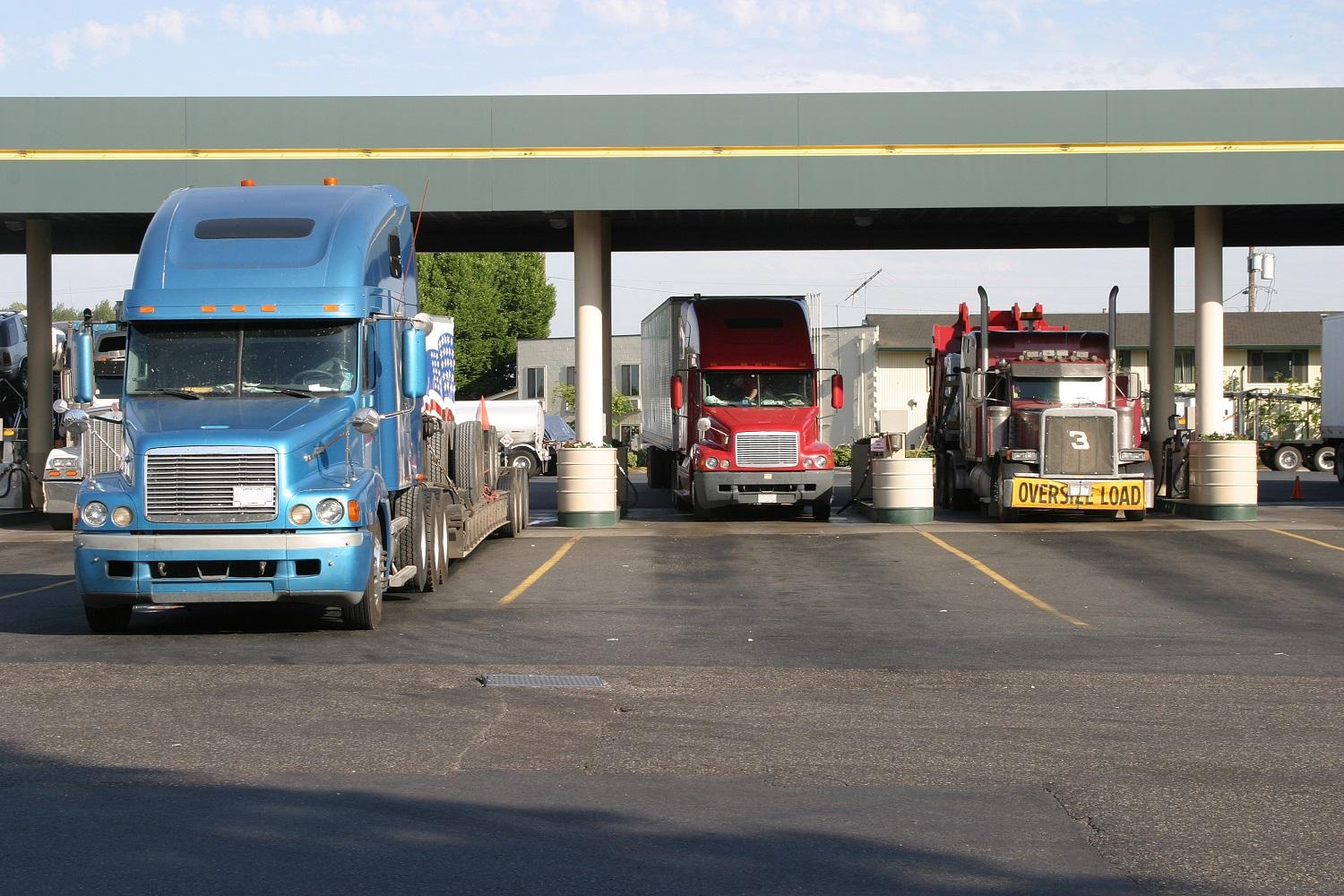MENU
Start
- Best Small Business Loans for 2024
- Businessloans.com Review
- Biz2Credit Review
- SBG Funding Review
- Rapid Finance Review
Our Recommendations
- 26 Great Business Ideas for Entrepreneurs
- Startup Costs: How Much Cash Will You Need?
- How to Get a Bank Loan for Your Small Business
- Articles of Incorporation: What New Business Owners Should Know
- How to Choose the Best Legal Structure for Your Business
Our Guides
- Business Ideas
- Business Plans
- Startup Basics
- Startup Funding
- Franchising
- Success Stories
- Entrepreneurs
Small Business Resources
Grow
- The Best Credit Card Processors of 2024
- Clover Credit Card Processing Review
- Merchant One Review
- Stax Review
Our Recommendations
- How to Conduct a Market Analysis for Your Business
- Local Marketing Strategies for Success
- Tips for Hiring a Marketing Company
- Benefits of CRM Systems
- 10 Employee Recruitment Strategies for Success
Our Guides
- Sales & Marketing
- Finances
- Your Team
- Technology
- Social Media
- Security
Small Business Resources
Lead
- Best Business Phone Systems of 2024
- The Best PEOs of 2024
- RingCentral Review
- Nextiva Review
- Ooma Review
Our Recommendations
- Guide to Developing a Training Program for New Employees
- How Does 401(k) Matching Work for Employers?
- Why You Need to Create a Fantastic Workplace Culture
- 16 Cool Job Perks That Keep Employees Happy
- 7 Project Management Styles
Our Guides
- Leadership
- Women in Business
- Managing
- Strategy
- Personal Growth
Small Business Resources
Find
- Best Accounting Software and Invoice Generators of 2024
- Best Payroll Services for 2024
- Best POS Systems for 2024
- Best CRM Software of 2024
- Best Call Centers and Answering Services for Busineses for 2024
Our Recommendations

Online only.
What Is Fleet Management?

Table of Contents
Fleet management is the process by which a company’s vehicles are monitored and controlled, including driver training and policy enforcement. Today, fleet management typically involves the use of GPS fleet management software, which uses tracking hardware to send data to fleet managers in near real-time. If you run a business that utilizes a fleet of vehicles, it’s helpful to use telematics like these to track each vehicle, improve driver safety and issue status reports. These solutions prioritize efficiency, help you save money and can keep your fleet compliant with important state and federal regulations.
We’ve put together this buying guide to help you know what to look for when selecting a GPS fleet management provider. This guide answers common questions associated with fleet tracking services, highlights key features and costs and recommends high-quality vendors to consider.
Editor’s note: Looking for information on GPS fleet management systems? Fill out the below questionnaire to be connected with vendors that can help.
What is GPS fleet management?
Think of GPS fleet management as virtual ride-along technology. Instead of hiring a manager to sit in the passenger seat and monitor your company’s vehicles and drivers on the road, GPS fleet management lets you keep an eye on everything from wherever you are. This type of solution helps ensure vehicles are operating efficiently and that drivers are being safe and responsible.
GPS fleet management includes both hardware and software. The hardware is used to track your vehicle and how it is being operated. The type of hardware your vehicle will need will vary based on what you want to be monitored. Some services offer easy, plug-and-play trackers that are about the size of a deck of cards. Other setups require more advanced installation, which usually involves hooking up various sensors to the information centers of your vehicle.
The vehicle is then tracked using a GPS. The hardware sends real-time updates and data to the software, which serves as a central hub for all of the information about your fleet. You can monitor your fleet remotely on any internet-connected device that has the software platform installed.
The importance of fleet management
Technology has revolutionized the way small businesses operate and running a fleet of vehicles is no exception. If you don’t take advantage of modern-day fleet management solutions in your day-to-day operations, you’re missing out on opportunities to increase your company’s efficiency and save money.
Fleet management software not only allows you to keep tabs on your vehicles and other assets but also helps you with fuel management, delivery route optimization, vehicle and driver communication and long-term logistic planning.
In today’s economy, information is power. By using telematics software, you’re opening up a new door to data and other information about your business and how you manage your fleet of vehicles or other assets. With that knowledge, you can improve operations.
GPS fleet management hardware and software help you manage your company’s fleet of vehicles by monitoring vehicle locations and driver behavior.
What does GPS fleet management software do?
GPS fleet management software can locate vehicles, set up routes and give directions to assigned destinations. These programs also provide information on vehicle diagnostics, maintenance tracking and safe driving behaviors. For example, a lot of GPS fleet management hardware devices are outfitted with accelerometers and other sensors, so if your driver suddenly brakes or accelerates, it will be documented in the software logs. Some services even offer reporting on harsh turning and cornering. This technology also allows you to track idling time, which is vital for improving fuel efficiency.
All of these software features combine to provide you with a platform to monitor your fleet, manage vehicle health, understand your drivers’ habits and track fuel efficiency. Most systems also come with dispatching tools and scheduling capabilities to improve workflow. These features can boost customer satisfaction by, for instance, providing delivery recipients with more accurate ETAs. Other popular functions include accident tracking, roadside assistance, anti-theft service, time clocks and attendance tracking.
GPS fleet management software can pinpoint a vehicle’s location, monitor fuel usage and track driver habits to ensure vehicles are being operated safely.
How much does GPS fleet management cost?
Pricing for GPS fleet management services can vary greatly based on what you want managed and tracked and how many vehicles you have in your fleet. On average, prices range from $25 per month, per vehicle, to $35 per month, per vehicle.
In addition to the monthly costs, there is often a one-time fee for the hardware that goes in each vehicle, though some providers allow you to rent the equipment for an added monthly fee. Many GPS fleet management vendors require you to sign a one- to three-year contract. However, some services come with free trials and money-back guarantees, giving you an opportunity to test the solution before committing to a long-term agreement.
Choosing fleet management software
To choose the GPS fleet management system that’s right for your business, first make sure it has the features your company needs. Most fleet management providers offer a variety of functions that come in a standard offering. At the very least, your package should include the following:
- Communication and navigation options
- Driver safety tracking
- Dashboards that show trends for critical metrics
- Integration with fuel cards
- Customer support during business hours
Some vendors provide additional features that are either included in their standard plan or cost extra.
Other key capabilities to look for
The ideal GPS fleet management solution will also offer the following:
- Alert systems: This means notifications are sent via text and email when something isn’t right with your vehicles or drivers. Choose a provider that lets you set alerts for specific occurrences, such as if a driver has gone off-route or is engaging in unsafe driving habits.
- High ease of use: There are some very complicated software applications out there, so choose one with a simple, intuitive dashboard. Many vendors provide in-person or virtual demos, so try to test the system before making a commitment.
- Mobile access: Not all GPS fleet management applications support mobile device usage. If you need access to the software anytime, anywhere, make sure it’s cloud-based or check if there’s an app for your preferred device.
- Extended customer support: Find a vendor that lets you contact a representative anytime you need help, whether via phone or live chat. Other types of customer service to look for include help-desk ticket systems, email support, documentation and how-to videos.
While the fleet management system you choose should fit your budget, don’t pick one solely on price. Rather, select the solution that best helps your business track your fleet and reduce operational costs. If you choose the cheapest service, it may not perform as well as slightly more expensive offerings.
Check out our roundup of highly rated GPS fleet management systems to find the best service for your business.
Questions to answer before buying GPS fleet management services
As you look for a GPS fleet management service, keep these details in mind.
- What type of vehicle and driver information do you want to track?
- How many vehicles do you need to track?
- How much do you want to spend on monthly fees and upfront costs?
- Are there any processes you could automate regarding payroll, driving logs, routing or call scheduling?
- Is your fleet operating in the greenest way possible? Will this system help you continue to do so or make improvements?
- Can you rely on your employees to log hours worked and service calls met consistently and accurately?
- Have you experienced or are you worried about theft of equipment or vehicles?
- Are you overspending on your mobile workforce?
- Do your fuel costs put a strain on the bottom line?
- Can this system address the problems you’re trying to solve?
- Will this system improve your client service?
- What features do you need now and what might you need in the future?
- What type of return on investment will you get with this system?
What are the advantages of fleet management software?
Here are some of the benefits of using GPS fleet management software:
- Vehicle management: By keeping tabs on your vehicles and assets, you can plan better routes and optimize driver performance.
- Fuel management: By tracking routes and vehicle locations, you can get more detailed information about fuel consumption and make adjustments accordingly. Telematics software typically includes a feature for fuel management and consumption tracking that allows you to save money and plan how your vehicles use fuel.
- Driver safety: GPS fleet management software lets you track and rate driver performance, thus increasing the safety of your overall fleet.
- Customized alerts: You can set up specific and customized alerts so you can prioritize vehicle locations, driver safety and fuel usage constantly. In addition, such software usually includes a wide range of other alerts you can set up to optimize your fleet’s management.
- Regulatory compliance: GPS fleet management companies give you the guidance and tools to comply with state and federal vehicle fleet regulations, like rules for electronic logging devices, the International Fuel Tax Agreement, hours of service regulations and driver vehicle inspection reports. By working with these vendors, you can ensure you’re staying compliant with relevant rules and regulations.
What are the disadvantages of using GPS fleet management software?
Despite all of the above benefits, there are a few downsides of GPS fleet management software:
- Potential impact on employee morale: Implementing this software may result in employee pushback. Drivers may not want to be monitored and could view the decision to use GPS fleet management systems as a sign their employer doesn’t trust them and a violation of employee privacy. If you decide to use a tracking solution, consider how you plan to inform your employees. The best thing you can do as a business owner is explain the rationale and logic behind the decision. Also, be transparent about what the software does, so they’re clear on exactly what’s being monitored and how — and how they can benefit, such as with rewards for safe driving.
- Additional cost. Depending on your business’s financial situation, it may be difficult to take on the additional expense of telematics software. It’s crucial to weigh the costs and benefits before making any decisions. Implementing a fleet management system may require a significant upfront investment, but you’ll likely save in the long run by cutting fuel costs and optimizing routes.
The best GPS fleet management providers
Of the many GPS fleet management providers on the market, below are some of the best ones to consider for your business.
GPS fleet management provider and review | Best for |
Driver accountability | |
Improving driving standards | |
Industry-specific firms | |
Granular reporting | |
Startups and small businesses | |
Personalization | |
Easy implementation | |
| FleetUp Review | Mixed fleets |
Using tools to get the most out of your fleet
Getting your fleet on the road is a key step in running your business. After that comes managing your fleet. GPS fleet management software makes tracking all the key information related to your drivers and vehicles relatively easy. You’ll find these details stored in a central online location so you can see the ins and outs of your fleet’s activity and make operations adjustments as needed. With software that’s as powerful as it is simple, you can reap all the benefits of a safe and efficient fleet.
Shayna Waltower contributed to this article.











